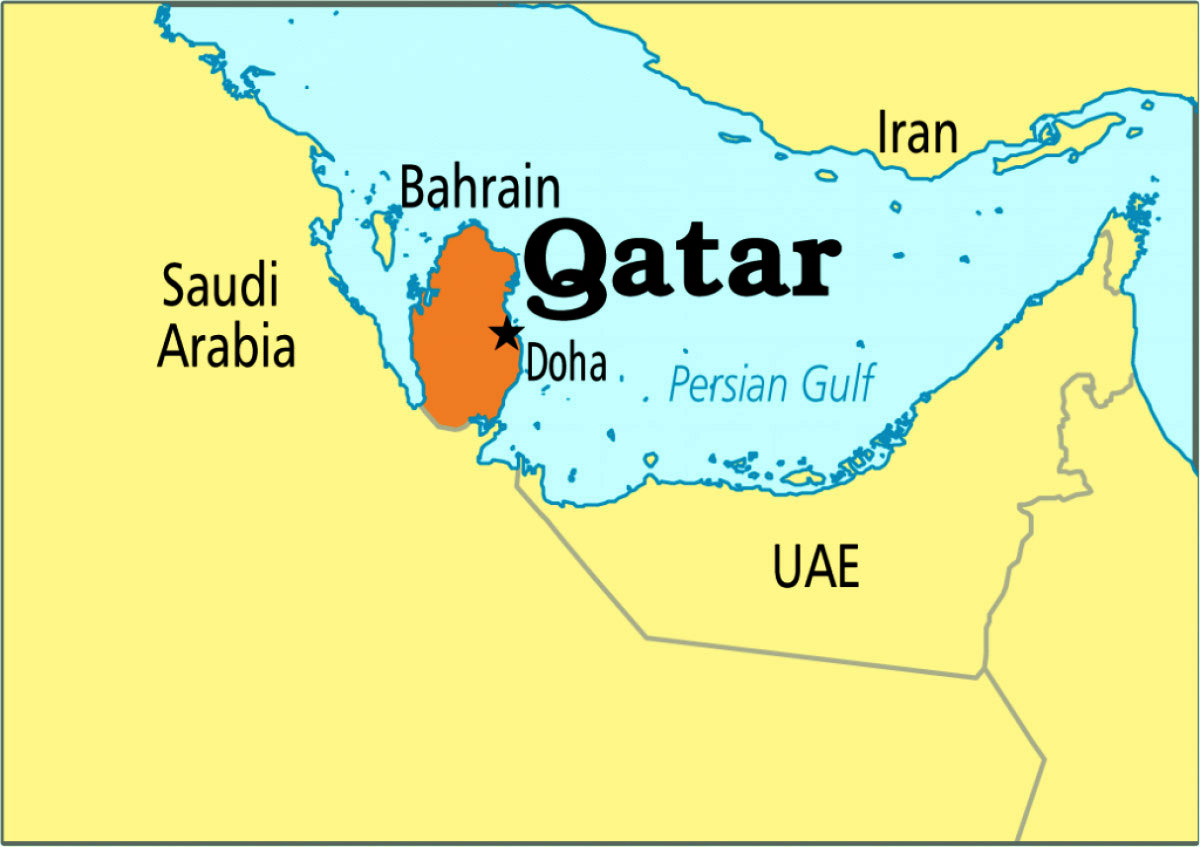International Relations
Former Navy Personnel Sentenced to Death in Qatar
- 30 Oct 2023
- 7 min read
For Prelims: Former Navy Personnel Sentenced to Death in Qatar, Indian Navy, India-Qatar Relations, International Court of Justice (ICJ), United Nations (UN).
For Mains: Former Navy Personnel Sentenced to Death in Qatar, Legal options with India, and its Implications on India-Qatar Relations.
Why in News?
Recently, a Qatari court has sentenced eight former personnel of the Indian Navy to death in the Espionage Charges.
- The individuals were arrested in August 2022 and faced charges related to breaching sensitive secrets.
What is the Background of the Case?
- Accusations:
- The accused individuals, while employed by Al Dahra in Doha, were allegedly accused of breaching sensitive secrets at the time of their arrest in 2022 in Qatar.
- Dahra Global Technologies and Consultant Services, the company they worked for, was also linked to the production of advanced Italian-origin submarines known for their stealth capabilities.
- However the specific charges against the eight Indian nationals have not been made public by Qatari authorities.
- Previous Trials:
- The case has seen two trials in March and June of 2023. While the detainees were granted consular access on multiple occasions, both Indian and Qatari authorities have maintained a veil of secrecy around the case, citing its sensitivity.
- India's Reaction:
- India has expressed deep shock and concern over the death sentences imposed on its citizens and is exploring all possible legal options to secure their release.
- The Ministry of External Affairs (MEA) has conveyed the high importance attached to this case and reiterated its commitment to providing consular and legal assistance to the detained individuals.
What are the Diplomatic Implications of this Case?
- The verdict could potentially strain relations between India and Qatar, where a significant number of Indian migrants contribute to fostering economic and diplomatic ties.
- With over seven lakh Indians in Qatar, the Indian government is under pressure to act at the highest level to save the lives of the detainees.
- They are making their contribution in different sectors. Indians are highly respected in Qatar for their sincerity, hard work, technical expertise and law-abiding nature.
- The remittances which the Indian expatriate community in Qatar send to India are estimated to be around 750 million dollar per annum.
- This case represents the first major crisis in the India-Qatar relationship, which has generally been stable.
- The two nations have engaged in high-level meetings, with the Prime Minister of India visiting Doha in 2016, followed by meetings with the Emir of Qatar.
- Qatar is a significant supplier of liquefied natural gas (LNG) to India, accounting for a substantial portion of India's LNG imports.
How can India Prevent Former Navy Personnel from Facing the Death Sentence in Qatar?
- Diplomatic Options:
- India can engage in direct diplomatic negotiations with the Qatari government to seek a resolution to the case. Given the strategic and economic importance of the relationship between the two countries, diplomatic leverage can play a significant role.
- The government can also use diplomatic pressure to prevent meting out the death penalty.
- Among the possibilities being looked at is filing an appeal against the verdict or using an agreement signed by India and Qatar in 2015 for the transfer of convicted prisoners so that they can complete their sentence in their home country.
- NGOs and civil society can raise the issue at a global level, and pressure from the United Nations can be taken too.
- Legal Options:
- The first step is to appeal within the judicial system in Qatar. The individuals sentenced to death can file appeals within the Qatari legal system.
- India can provide legal representation to the detainees and ensure that their right to appeal is pursued vigorously.
- If due procedures are not followed or an appeal process is missing, then India can invoke International Court of Justice (ICJ) jurisdiction.
- ICJ acts as a world court with two fold jurisdiction i.e. legal disputes between States submitted to it by them (contentious cases) and requests for advisory opinions on legal questions referred to it by United Nations organs and specialized agencies (advisory proceedings).
- The first step is to appeal within the judicial system in Qatar. The individuals sentenced to death can file appeals within the Qatari legal system.
In What Cases was India Involved with the ICJ?
- Kulbhushan Jadhav Case (India Vs Pakistan)
- Right of Passage over Indian Territory (Portugal v. India, culminated 1960).
- Appeal Relating to the Jurisdiction of the ICAO Council (India v. Pakistan, culminated 1972).
- Trial of Pakistani Prisoners of War (Pakistan v. India, culminated 1973).
- Aerial Incident of 10 August 1999 (Pakistan v. India, culminated 2000).
- Obligations concerning Negotiations relating to Cessation of the Nuclear Arms Race and to Nuclear Disarmament (Marshall Islands v. India, culminated 2016).
Way Forward
- The way forward is likely to be challenging and may require time and persistence. It's essential for India to remain committed to the well-being and legal rights of its citizens while navigating the complexities of international diplomacy and the legal process in Qatar.
- Successful resolution may require a combination of diplomatic efforts, legal actions, and international cooperation.







-min.jpg)